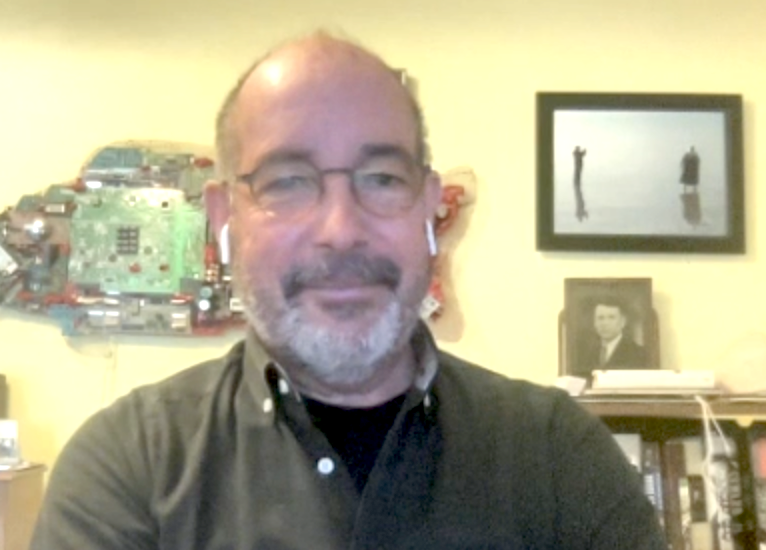
WASHINGTON — A Justice Department document asks the simple question: Why Go Undercover on Facebook, MySpace, etc.?
Then it goes on to explain: “Communicate with suspects/targets” … “gain access to non-public info” … “map social relationships/networks.”
The document, part of a Justice Department PowerPoint presentation, shows how some federal and local law enforcement agents are quietly creating fictitious accounts on social networks like Facebook and MySpace to get dirt on suspected criminals. The presentation recently surfaced in a Freedom of Information Act lawsuit in a San Francisco federal court.
Some federal and local law enforcement agents are quietly creating fictitious accounts on social networks like Facebook and MySpace to get dirt on suspected criminals
“This is just the way people meet these days — electronically,” James Cavanaugh, special agent in charge of the Nashville office of the Bureau of Alcohol, Tobacco, Firearms and Explosives, told AOL News. “It wouldn’t be any different than calling someone on the phone, say, in an undercover capacity. If we can meet them on Facebook by creating a fictitious account, that’s great. ”
Even so, the Electronic Frontier Foundation in San Francisco filed the lawsuit in December against about a half a dozen federal agencies to create a public dialogue on the matter and make sure agencies have guidelines for agents, according to Marcia Hofmann, a senior staff attorney for the foundation. The Justice Department, Homeland Security, Treasury, the CIA and the Office of the Director of National Intelligence are included in the suit.
Some agencies don’t readily appear to have guidelines and some have offered to produce them in coming months to satisfy the demands in the lawsuit, according to Hofmann.
“This on one hand is a very clever use of these tools, but it makes you wonder when enterprising agents come up with these ideas, what is appropriate and what is not,” she said. “I don’t want to speculate as to what they do and they don’t do. I do think there should be a public debate whether it’s ethically sound or not. There should be some transparency.”
Initially, social networks like MySpace, which first surfaced in 2003, and Facebook, which launched in 2004, and Twitter which arrived in 2006, were simply for hip high school and college-aged kids. As social media’s popularity soared, law enforcement began to realize that there was more to these networks than idle gossip and photos of cats, dogs, proms and beer parties.
Now, some federal agents privately talk, almost in amazement, about how much information is available on social networks and how careless criminals are. They say some information can be obtained without even going undercover.
In fact, they say some criminals — and noncriminals as well — fail to select the right security settings to block non-friends from seeing photos and other personal information on sites like Facebook. And besides, anyone can see a person’s friend list without “friending” the person.
“It’s not like we have to dig very deep,” said one federal agent who has not created fictitious accounts but knows of others who have. “Facebook is the best. They videotape themselves. They have pictures with guns, posing with gang members. There’s addresses of homes. We tend to go after what’s there.”
Another federal agent says he’s amazed how freely some criminals post information on social networks.
“I’m surprised by the recklessness of it,” the agent said. “I would think they would be smarter. That’s why we only catch the stupid ones. ”
Still, even before the recent documents surfaced publicly about fictitious accounts, some federal law enforcement agencies readily admitted to being aware of criminals using the social networks.
On Jan. 27, for example, the Drug Enforcement Administration in Los Angeles issued a press release about the indictment of 20 suspected members of the Riverside Street Gang with ties to the Mexican Mafia. The release noted that the members use “MySpace.com to communicate about gang business, and they use rap music videos and recordings to deliver a message of violence and intimidation.”
DEA Agent Sarah Pullen of the Los Angeles office said of the probe, “Any time you have visual evidence that is available, it is extremely helpful in conducting an investigation. It would be the same as a piece of mail or a photo; anything that shows evidence of a crime.”
In Washington, federal law enforcement agencies have responded to the issue of agents creating fictitious undercover accounts with carefully worded responses.
“The Department of Justice and our agents follow applicable laws, regulations and internal guidelines for investigations, regardless of whether those investigations occur online or on the street,” Laura Sweeney, a spokesman for the Justice Department, said in a statement to AOL News.
“Just as we’ve done successfully in identifying and prosecuting child predators online, we will continue to use publicly available information individuals post online about their illegal activities, or false statements to law enforcement officials, in our investigations. To do otherwise would be negligence on our part,” Sweeney said.
Paul Bresson, an FBI spokesman, noted, “Simply said, law enforcement needs to be able to constantly adapt to the changing world around them while maintaining its ability to use all lawful and available tools at its disposal to gather potential leads to solve crimes.”
Interestingly, the Internal Revenue Service provided a document in the San Francisco lawsuit that states employee guidelines for the Internet. “You cannot obtain information from websites by registering … fictitious identities,” the document said.
“I think it’s interesting the IRS has drawn the line, and the Justice Department has not,” the Electronic Frontier Foundation’s Hofmann said.
There has been limited public outcry about the prospects of agents creating undercover accounts since the Justice Department document surfaced.
But Hofmann mentioned the La Crosse, Wis., police department, which reportedly created a fake Facebook page using an attractive, blond-haired woman to lure students and find out about underage drinking. The department did not return a call for comment.
The La Crosse Tribune reported in November that Adam Bauer, a University of Wisconsin-La Crosse sophomore, had nearly 400 friends on Facebook and added the attractive woman. Shortly after, police had Facebook photos of him drinking, and he was fined $227.
After his court appearance in November, Bauer told the paper, “I just can’t believe it. I feel like I’m in a science fiction movie, like they are always watching. When does it end?”









6 thoughts on “Fed Agents Going Undercover on Social Networks like Facebook”